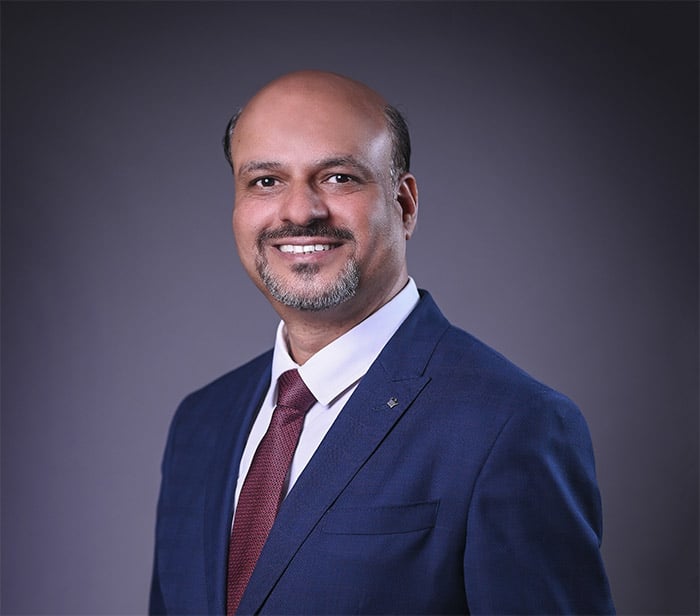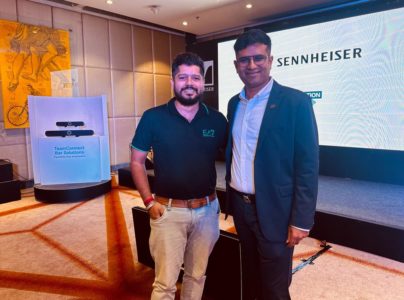Amit Sharma, Senior Manager – Research, Industry Intelligence Practice, CMR
I recently met with Mr. Arvind Kakru, Director of Sales, Rockwell Automation India, who has shared his views on Industry 4.0 and talked about the market trends and their growth priorities, etc. for the upcoming year.
Amit: Could you please share your views on Industry 4.0?
Arvind: Industry 4.0 and the industrial Internet of Things are transforming manufacturing and industrial operations through deeper visibility, greater connectivity, and enormous potential for improvement. Companies using Industry 4.0-based principles are finding that they bring people, processes, and equipment together, from sensors and smart devices to entire systems. Connectivity deepens operators’ understanding of events and sharpens decision-making.
The proliferation of smarter endpoints, data analytics, scalable computing, mobility, and visualization are reshaping the future of industrial automation. Industry 4.0 solutions help to better gather and analyze data and transform it into actionable, real-time, insightful information. However, with these rapid technological advances come new demands on the workforce. It takes a skillset to enable IT and OT convergence and to take advantage of the potential in an industrial context.
Organizations embracing the new era of Industry 4.0 concepts and information-enabled manufacturing and industrial production are actively ensuring workers have the necessary skills and knowledge. Technological innovations globally and digital acceleration initiatives from the industry and the local government will play a significant role in making India a significant contributor to the 4th Industrial Revolution.
Amit: What are your growth priorities for the upcoming year?
Arvind: We have focused on accelerating the industry’s digital transformation, which remains a key priority for us. This could mean expanding the solution offering to a larger enterprise-wide smart manufacturing initiative. We have invested quite significantly in the recent past in digital and cyber security by way of acquisitions and partnerships, and we will introduce some of these technologies and solutions into the market. Software as a service (SaaS) and cloud computing ERP for manufacturing would be a new introduction for us through Plex.
Our focus on the digital transformation of the value chain, from the product to the plant to the end user, would accelerate through Kalypso. This means leveraging digital technologies and capabilities to fundamentally change the way companies discover, create, make, and sell new products. We will continue to leverage our Centre of Excellence for key industries to provide enhanced digital and domain-centric industry digital solutions. We will provide augmented reality solutions that build operator skills and help them perform complex tasks. Emulate3D, our dynamic Digital Twin technology, would develop cost-effective software products that facilitate the demonstration, understanding, and sale of automated material handling systems and their efficient market deployment, support, and maintenance.
Our CMMS Fiix software offering is a great tool to cut downtime and costs, increase productivity, and enable organizations to streamline maintenance workflows and standardize best practice operations across multiple locations. Fiix’s cloud-native software would help companies schedule, organize, and track equipment maintenance.
Our deep experience in industrial environments around the world provides unparalleled expertise in production operations as we discuss industrial cybersecurity. From automation and infrastructure management to digital transformation and cybersecurity, our first-hand insight, proven cybersecurity solutions, and unmatched logistical expertise can help solve the exact challenges in an OT environment. We can assess current risks and vulnerabilities and create the right plan to secure operations, address exposures, and strengthen defenses through steps like asset inventories, perimeter hardening through IDMZ, network segmentation, and firewall deployment, OT patching, secure remote access, 24/7 threat monitoring and incident response, and more.
Among many other automation offerings, Independent Cart Technology would be a game changer for manufacturing. It uses magnets to precisely control motion with frictionless propulsion. This results in fewer parts, reduced energy consumption, and the ability to quickly start and stop loads without losing control or putting wear on parts. Our customers can have eyes on the shop floor with great automation and electrical and safety products that monitor processes and provide security.
Our recent acquisition of CUBIC, which offers the widest and most versatile programme of stainless and painted standard solutions in the market, will be a critical thrust area, subject to regulatory approvals getting closed. CUBIC products and solutions that cover various application possibilities give us an expanded portfolio of electrical solutions and a local manufacturing footprint in the country.
Amit: What are some of the market trends that you foresee in your segment?
Arvind: Digital transformation would see acceleration, with Make in India, production-linked incentives, the Infrastructure Pipeline, 5G rollout, and the country’s aspiration of becoming a digital superpower being major drivers. Cloud adoption is becoming gradually more popular with larger corporations as they transition their business systems to the cloud. Analytics is seeing more adoption with deeper and broader use cases. The Global Lighthouse Network is driving Digital 4.0 adoption in manufacturing, with an increasing number of Indian companies getting certified. ESG and sustainability are becoming critical initiatives for most industries. OEMs are keen to build smart machines that provide unprecedented access to data, greater connectivity, and robust security.
As IT/OT integration becomes a reality, network security and cyber security in general are receiving major attention. Remote testing, predictive maintenance, and virtual training are finding more value with the manufacturers. Smarter automation solutions will continue to see an upward trend. And from an industry point of view, new industries like electronic manufacturing, semiconductors, solar manufacturing, electric vehicles, battery manufacturing, and green hydrogen are coming up that will shape the future of manufacturing to a substantial extent.
Amit: What is the competitive advantage that you have to offer?
Arvind: We are arguably the largest company solely dedicated to automation and information. We believe that The Connected Enterprise is a practical, step-by-step approach that helps manufacturers and machine builders achieve significant business outcomes. It converges plant-level and enterprise networks and securely connects people, processes, and technologies, using the information to drive productivity, sustainability, and global competitiveness. We have the breadth and depth of technological innovation and a broad portfolio of automation and information to deliver these outcomes.
Our domain expertise and global support are integral to our success; we have people with deep industry knowledge and exceptional solution skills serving customers in more than one hundred countries. We leverage our domain experts in several industries, sharing best practices and enlisting the knowledge and experiences of an entire supply chain. This domain knowledge allows us to provide a wide range of solutions, services, and support to meet our customers’ needs. We have ramped up our India operations with 3000+ people with predominantly engineering backgrounds who work on projects around the globe.
Our network of partners and unique market access model makes it possible to deliver comprehensive solutions across geographies and industries. We have a network of leading companies whose products and services complete our solutions. Together, these business relationships allow us to construct strategies for streamlining supply chain costs, implement best practices for simplified project implementation, and deliver the greatest value from an automation investment.
Amit: What is your go-to-market strategy?
Arvind: Rockwell Automation has a strong product and solution portfolio that serves customers across multiple industries. We have both a direct solution and service model that support customers on large automation, electrical, and digital projects. At the same time, our ecosystem of partners helps provide comprehensive solutions to our customers. We also work very closely with global technology leaders to offer industry-specific solutions. These are prominent companies that have experience delivering products or services that are designed to work along with and complement our solutions. Rockwell Automation also relies on its trusted network of distributors and system integrators to build industry-specific solutions and applications.











